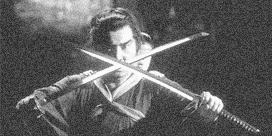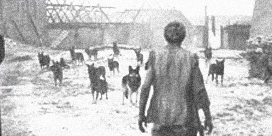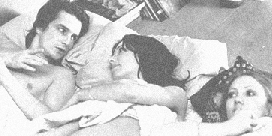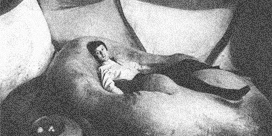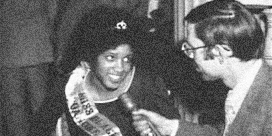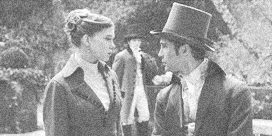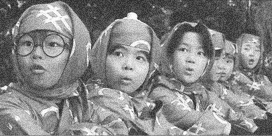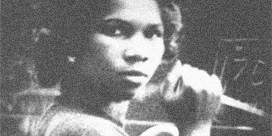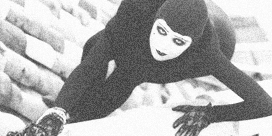October Twenty-Third Two-Thousand Eleven
by Rumsey Taylor Wu-Tang Clan’s seminal debut album spawned dozens of offshoots from its principle affiliates, and I spent months listening to many of them. This ambition is akin to traversing a road that splits into more and more fractal diversions, and for all the outright quality it prescribes most of it pales in comparison to Wu-Tang’s more kaleidoscopic, showboating group efforts. Nonetheless, this impulse led me to GZA’s first solo record, Liquid Swords, which unquestionably dominated my listening in 2011.
Liquid Swords is constructed like many of Wu-Tang’s solo records: it is produced by RZA, and includes excerpts from a kung-fu movie as peripheral accompaniment. The film in this case is Shogun Assassin, which is particularly appropriate as it is itself an appropriation of two previous films: Lone Wolf and Cub: Sword of Vengeance and its 1972 sequel, Baby Cart at the River Styx. The film is awash in cartoonish, expertly choreographed action and violence, and GZA repurposes its tone, recontextualizing the story of a widowed father and his young son as he seeks revenge from the shogun who has ordered his death. In GZA’s music, this aspect of revenge becomes a statement of purpose, a narrative that relays his upbringing in Brooklyn to his rise against coke-induced DJs.
Shogun Assassin originated in the U.S. in 1980, parading on the grindhouse circuit in New York before meeting controversy in its inclusion in the Video Nasties shortly thereafter. The film dispenses with the dialogue and score from the original films, foreshortening the narrative and recomposing it in a new synthesizer score. All of this may seem ill-suited to the film’s origin as a feudal drama, but it's rendered a collage of considerable variety, action, and humor. On GZA’s record, the film’s climaxes are repeated verbatim, and they preface songs that echo the film’s themes of retribution and the assertion of one’s place and stature. This is from the album’s third track, Living in the World Today:
Well if you livin in the world today
You be hearin the slang that the Wu-Tang say
N----- that front we don’t handle em
So we blast em, alright, well OK
This reads more aggressively than it’s delivered, and the whole record is paced in RZA’s hi-hat-driven, 4/4 time signature. It’s relaxed but alert, poised for lyrical thrusts. My favorite:
I gotcha back butcha best to watch your front
Cause it’s the n----- who front, they be pullin stunts
Neither GZA nor the ninja invite conflict, but both are readied for it. Both operate according to a moral code, in other words, and it is this idea that analogizes the film and the album: both are testaments of strength and capability, and both – unlike virtually every other piece of media I consumed in the past year – I enjoyed many times over.
